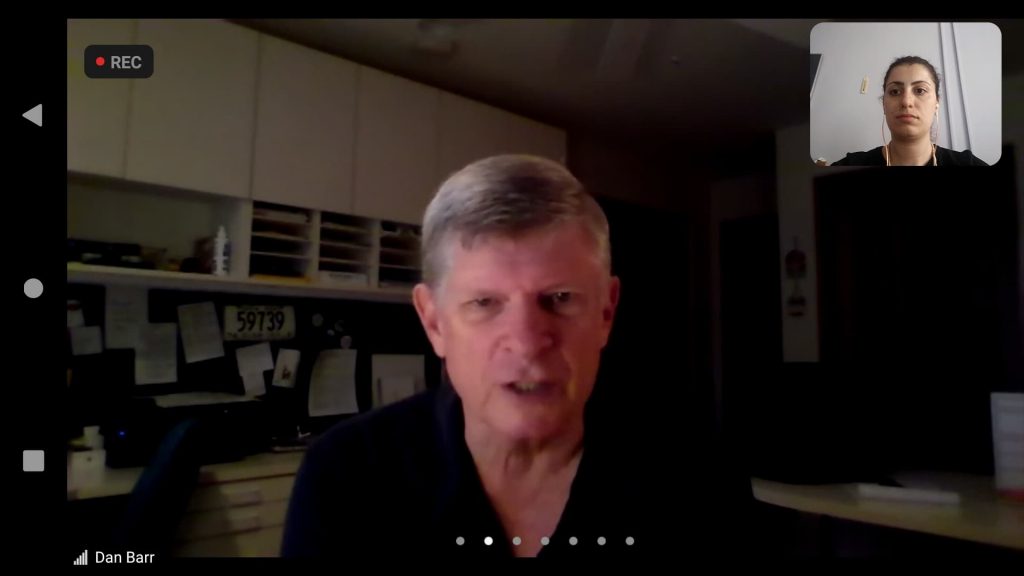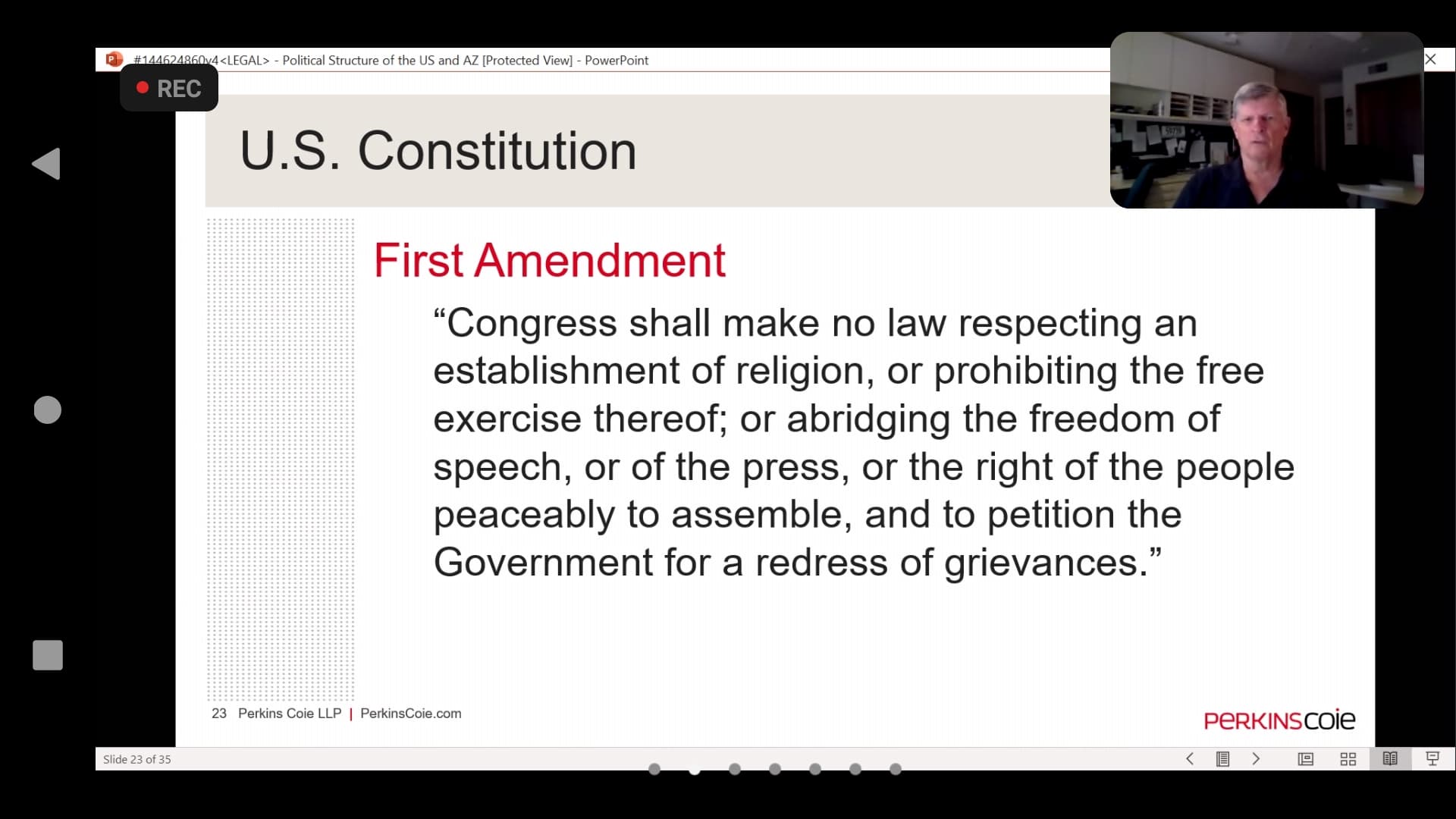The second week of the program promises to be busier with tougher questions on media regulation, protection of freedom of speech and press, and the boundaries of that freedom in the social media age.

This Monday Daniel Barr, partner in the law firm Perkins Coie and our second instructor at SUSI 2021, laid the groundwork for the week’s discussions and managed to sum up the most interesting points about the very complicated U.S. legal system. While it is easy to get lost in the nuances of common law, differences between the state and federal laws and constitutions, the countless amendments to those constitutions, to me there were a few main takeaways and thoughts for reflection.
- The rule of law is the basis for a free, strong and democratic society. The rule of law is something that the USA is very proud of and something my society is fighting for. Surely, there are many problems in the States as well, but they have a system that works. Armenia has had independence for about 30 years now after the collapse of the Soviet Union. As in most post-Soviet countries we still are building democracy and rule of law going through various challenges: cultural, legal, political, geo-political.
- Independence and impartiality of the judicial branch. We can argue about cases, policies, reforms, but it is vital to have a court that people trust in and judges that do justice. After the 2018 revolution in Armenia that is known as a free and democratic movement, the society was expecting large reforms in the judiciary as it had been the most corrupt sector in the country, all the way up to the Constitutional Court. The reforms did not happen, which lead to deeper constitutional, legal and political crisis.
- Protection of free speech and free press. First of the 27 amendments to the United States Constitution is the one that media professionals around the world refer to when talking about freedom of speech. The landmark cases included in this week’s reading materials are among those that we in Armenia discuss during journalism and media literacy trainings. Protection of free speech and the press is not possible without the rule of law and a strong, independent judiciary.
- Understanding why free speech and media should be protected is a key topic for media literacy. The current ecosystem of mis- and disinformation often leads to attempts at tougher regulation of the media field, efforts to control media. Sometimes, the request for this comes from different groups of society who are lost in the information chaos. Only in-depth understanding of the value of a free but responsible press and the role of free speech can balance censoring efforts by governments, and will create the public demand for fair, sensible solutions to the problem.
I believe that SUSI and this fantastic network of professionals from around the world can help us better understand our local issues in the global perspective and maybe also take steps towards the solutions.
